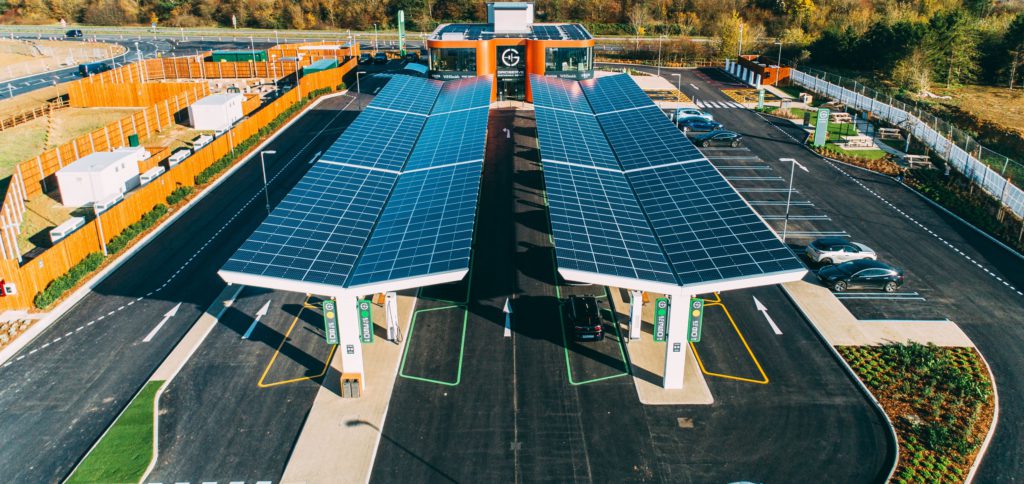Examining growth of UK EV charging sector
07 December 2020

7 December 2020
As the UK’s ban on the sale of new petrol and diesel vehicles is brought forward to 2030, battery-electric vehicles (BEVs) have become a focal point of the government’s ′green recovery’. But to ensure all electrically-chargeable vehicles (EVs) are capable of going the distance, a significant amount of time and money is to be invested in charging infrastructure.
While the government plans to support the installation of charging points with a £1.3 billion (€1.4 billion) package, the private sector is also racing to meet demand. On 6 December, sustainable energy company Gridserve announced the opening of its electric forecourt, the first of a hundred it plans to unveil ahead of the 2030 ban, offering an example of how businesses are looking to help increase infrastructure. But to ensure the growth of this new sector is competitive and consumer-focused, the Competition and Markets Authority (CMA) has also launched a new market study.
Shaping a sector
The UK currently boasts some 20,000 EV charge points, up from around 1,500 in 2011. But the CMA recognises that far more infrastructure will be needed to meet the upcoming demand of mass EV adoption. Therefore, it wants to ensure the sector works well for consumers now and in the future, building trust and addressing charging anxiety.
So, the CMA’s work will focus on two key points. First, it will examine how to develop a competitive sector, while also attracting private investment that will further encourage growth. Secondly, it will consider how to ensure consumers using the charge points have confidence that they can get the most out of the service. The CMA plans to finish its market study within a 12-month deadline to help it achieve these goals.
′Making the switch to electric vehicles is key to helping the UK become greener, which is why it is so important that everyone has the confidence to get behind the move. Being able to easily stop off at a petrol station is a standard part of a journey and consumers must trust that electric charge points will provide a similarly straight-forward service,’ said Andrea Coscelli, CMA chief executive. ′By getting involved early as electric vehicles and charge points are still developing, the CMA can make sure consumers are treated fairly now and in the future.’
Electric forecourt
Playing a part in this expanding sector, Gridserve has opened its first electric forecourt in Braintree, Essex. This new site will act as a flagship, leading the way for the company’s network of 100 electric forecourts being built over the next five years, as part of a £1 billion UK-wide programme.
′Today’s announcement represents a major milestone in achieving Gridserve’s purpose to deliver sustainable energy and move the needle on climate change. It’s our collective responsibility to prevent greenhouse gas emissions rising further, and electric vehicles powered by clean energy represent a large part of the solution,’ said Toddington Harper, founder and CEO of Gridserve.
′However, charging has to be simple and free of anxiety, which is why we’ve designed our electric forecourts entirely around the needs of drivers, updating the traditional petrol station model for a net-zero carbon world and delivering the confidence people need to make the switch to electric transport today – a full decade ahead of the 2030 ban on petrol and diesel cars,’ Harper added.
The site allows 36 EVs to plug in, simultaneously using high-power chargers that can deliver up to 350kW of charging power, equalling roughly 200 miles (321km) of range in 20 minutes. As part of the company’s wider ′sun-to-wheel’ infrastructure, electricity is generated from solar-power canopies above the chargers, as well as a network of solar farms, offering net-zero carbon energy to consumers.
′Our government is committed to increasing the take-up of electric vehicles, to clean our air and enable us to achieve net-zero carbon emissions as quickly as possible, which is why we have just brought forward the ban on new petrol or diesel to 2030,’ said James Cleverly, Minister of State and MP for Braintree. ′Gridserve’s electric forecourt, close to Braintree, is the most advanced charging facility in the world and is pioneering the world-class infrastructure required to support our policies and drive the confidence we need to make the move to sustainable transport in the UK.